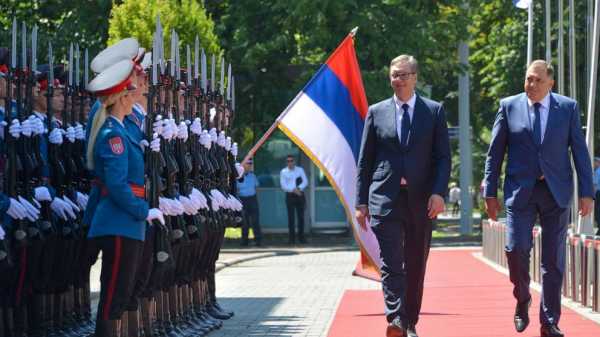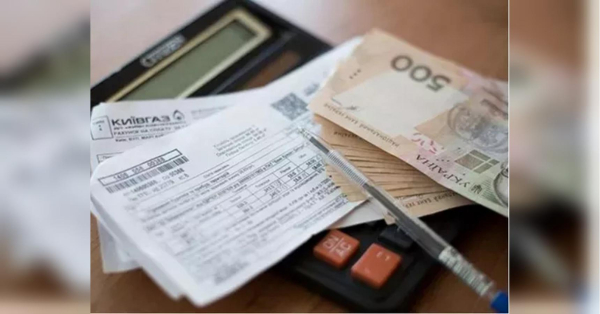
BANJA LUKA, Bosnia-Herzegovina — Serbia will ignore U.S. sanctions recently imposed on top Bosnian Serb officials for undermining a 1995 peace agreement that ended a war that left more than 100,000 dead and millions homeless, the Serbian president said Friday.
Serbian President Aleksandar Vucic said that the sanctioned ethnic Serb officials from neighboring Bosnia will still be welcome in Serbia.
“The Republic of Serbia will treat the sanctions as if they do not exist,” Vucic said, during a visit to the Serb region of Bosnia. “It is hard, but that’s the only possible decision.”
The four Bosnian Serb officials sanctioned by the U.S. Treasury on Monday include Zeljka Cvijanovic, a Serb member of the tripartite collective Bosnian presidency, as well as the prime minister of the Serb entity in Bosnia, Radovan Viskovic. The separatist leader of the Bosnian Serb entity, Milorad Dodik, has earlier been sanctioned by the United States.
The four are alleged to have taken part in drafting a law that U.S. and other international officials say undermines the unity of Bosnia by ignoring the decisions of the country’s constitutional court.
The Bosnian Serb parliament has passed the law to not recognize or implement any decisions by Bosnia’s multi-ethnic Constitutional Court, which is seen as another of the leadership’s attempts to separate from the fragile Bosnian federation.
Dodik, the Bosnian Serb leader, mirrored Vucic's allegations at a joint news conference, saying the U.S. sanctions are aimed against Serbs in general and that Washington has always led “anti-Serb” policies.
The U.S. Embassy in Sarajevo rejected such allegations, saying in a statement that they were a conspiracy theory about “some imaginary anti-Serb policy."
"The truth is that the United States Government sanctioned these individuals because their actions threatened the stability, sovereignty, and territorial integrity of Bosnia and Herzegovina, not because of their ethnicity," the statement said.
The Bosnian War started in 1992, pitting mostly Muslim Bosniaks, Serbs, and Croats against each other. It ended with the U.S.-sponsored Dayton accords that created two regions, the Republika Srpska and the Bosniak-Croat Federation.
“When the most powerful country in the world imposes sanctions against you, it is something that we should be worried about,” Vucic said, adding that the “inappropriate and underserved” sanctions “produce wrong effects.”
The U.S. recently also imposed sanctions on the pro-Russian head of Serbia’s security agency, Aleksandar Vulin, accusing him of involvement in illegal arms shipments, drug trafficking and misuse of public office.
There are widespread fears that Serbia, an ally of Russia, could inflame tensions in the Balkans to divert at least some of the world attention from the war in Ukraine.
Serbian populist leader Vucic on Friday attended in the Bosnian Serb entity commemorations for tens of thousands Serbs who in 1995 fled Croatia after a Croatian military offensive that marked the end of the war.
The Croatian “Operation Storm,” which started on August 4, 1995, saw the Croatian Army liberate a large part of the Croatian territory that had been under the control of rebel Serbs since 1991.
Croatian forces achieved their military goals in just three days, ousting the rebel Serbs’ unrecognized statelet, the Republic of Serbian Krajina. The anniversary is marked each year in Croatia as a national triumph, with mainstream media echoing the celebratory patriotic theme.
Among Serbs however, the narrative is very different. Operation Storm is seen by Serbs and their officials as a tragedy because it caused a huge exodus of Serb civilians from Croatia; several hundred Serbs were killed in the operation.
Adding to the simmering ethnic tensions in Bosnia nearly 30 years after the wars ended, Serb officials have decided to hold the exodus commemorations in the northern Bosnian town of Prijedor, where thousands of Bosniaks and Croats were killed during the Bosnian war, many in infamous prison camps set up by the Bosnian Serbs.
In their fiery speeches later Friday in Prijedor, both Vucic and Dodik launched into an anti-Western narrative, saying the “biggest exodus since World War II" was the result of a “joint criminal enterprise” of the U.S. and Croatia, and pledged that Serbia would never allow such a tragedy to happen again.
Sourse: abcnews.go.com






